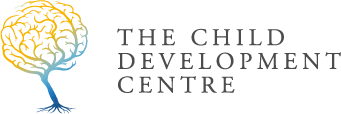Hypersensitivity: Could It Be Sensory Processing Disorder?
Living with hypersensitivity is challenging, especially for children. It affects their fundamental experience of the world around them and – understandably – it’s something that many parents and guardians will try to remedy. The problem is – if you don’t understand the root cause of the hypersensitivity, most treatments will fail.
Could sensory processing disorder be behind your child’s hypersensitivity? Read on as we take a closer look at this complex disorder, the symptoms and treatments.
What exactly is hypersensitivity?
Hypersensitivity can be difficult to get your head around, even for parents and guardians of children with the disorder. It refers to having heightened sensitivity to stimulation of the senses. This can apply to any of the five senses – touch, sight, hearing, smell and taste – and may even affect multiple senses for some sufferers.
Senses provide humans with a way to view, perceive and understand life and the world around us. What we see, taste, feel, taste and smell, moulds our physical understanding of life – essentially forming our conscious experience.
Imagine, if these sensations were heightened to the extreme, just how difficult everyday life would suddenly be.
Children with hypersensitivity will often complain about sensory stimuli that others perceive as ordinary. Whether it’s a sound, a feeling or a smell, it can be almost impossible for them to control their response to these extreme sensory stimulations.
Even a well-meaning hug can cause a child with hypersensitivity to lose their temper, which can understandably be difficult for parents and guardians alike.
Symptoms of hypersensitivity
Children may also suffer from hyposensitivity, which is generally grouped with hypersensitivity because of how it affects sufferers. While “hyper” refers to too much sensitivity, “hypo” means there is too little sensation for any of the five senses. Both disorders stem from issues in the brain and nervous system.
The difficulty with sensations can make everyday activities overwhelming and unbearable. It causes children to over or under respond to food, noise, light, sounds or textures. Because it impacts their basic experience of the world, it can manifest in almost every facet of a child’s life, such as:
- Difficulty with gross motor skills, such as walking clumsily
- Difficulty with fine motor skills like handwriting
- Hearing – Meltdown in response to loud bangs, fireworks or even loud chewing noises at the dinner table
- Aggression – Poor ability to focus due to constant noise and distraction
- Touch – Problems dealing with fabric textures, clothes labels and tight clothing or sand and grass on bare feet, for example
- Food – The taste and textures of certain foods, such as mushy banana, can be difficult to deal with
- No sense of boundaries or personal space
- An unusually high tolerance to pain
- Impaired language development, with difficulty reading aloud
- Overwhelming anxiety when learning something new
- Poor posture or strength
- Poor eye tracking, including hand eye coordination
- A discomfort with heights
- Resistance to change or failure to function or perform when following a strict routine
- Behavioural problems with a broad spectrum of severity
- Overreaction to visual or auditory input – children can be easily misdiagnosed and put on medication for ADHD
- Bad reaction to overstimulation from bright lights, in classrooms for instance
- Certain autistic characteristics
With many of these symptoms, it’s common for people to think children are just behaving badly when reacting to sounds, tastes, smells, touch or sights. However, they are actually unable to control their physical and emotional reaction to this information.
So, what’s actually behind hypersensitivity and hyposensitivity?
The symptoms occur when sensory stimuli aren’t interpreted properly by the brain – and the nervous system as a result. Any information received through the affected senses is heightened or dampened, determining how children respond to it.
At the root of the cause is the Reticular Activating System. This is part of the brain stem, which manages all information that is passed up through the spinal cord. Essentially, it acts as the resistor in the body’s neural circuitry. If underdeveloped, it leads to poor management of signals, known as Sensory Processing Disorder.
More on Sensory Processing Disorder (or SPD)
SPD can occur in two ways. Either it results in information overload, leading to stress and fatigue, or a lack of information, leading to poor interpretation of social norms or deficient skills. Because it’s such a central part of how we develop, SPD is at the root of a number of issues in both children and adults.
This also means children with one issue, such as dyslexia, may be contending with another disorder in some capacity, such as hypersensitivity or developmental coordination disorder.
In recent years, Autistic Spectrum disorder has grown as a concept. Science is beginning to note that all these difficulties are often interlinked. SPD is in the same category. It’s a form of developmental delay and neuromotor immaturity that can have interlinking disorders and symptoms.
Treating SPD and hypersensitivity
With just a few adjustments to a child’s day-to-day life, you can help them better manage the symptoms of hypersensitivity and hyposensitivity. One is to simply raise awareness and improve your understanding of the symptoms, as well as anybody regularly in contact with your child.
Children can also adopt a sensory lifestyle. For example, headphones can be used to regulate noise levels and special lighting can help avoid overstimulation.
However, it’s best to treat the root cause. By releasing incorrectly retained reflexes, it’s possible to alleviate over-stimulation or under-stimulation and remove the blocks of incorrect development. Here is how it can be done:
- Stimulation therapy – eye tracking, balance and sensory tasks
- Auditory processing – train the inner ear muscle with neuro-acoustic training
- Sensory integration therapy – comprising visual, auditory and somatosensory treatment
Can we help?
The Child Development Centre specialises in the treatment of retained reflexes. With more than 20 years’ experience, we have established tailored treatment methods to help children overcome their individual developmental difficulties. Our treatments target the root of the problem, providing lifelong solutions for children and a significant improvement in their quality of life. To talk in more detail about your child’s symptoms and how we can help, feel free to get in touch with our team.








12 Comments
Hi, i adopted my son as a baby, he was born at 26 weeks and had a tracheostomy until he was 2-5 when he had a reconstruction of this trachea.
He struggles with sensitivities. Loud noises are ok, it’s noises like hands over fabrics, fabrics rubbing together, squeaky whiteboard,s etc.
The same happens with the touch of some fabrics, bed sheets, clothes, labels, tight clothes. He panics, holds his head tenses up withdraws and becomes very angry, punching a pillow and he is saying now it makes him want to hurt himself and scares him, he often smacks himself in the head with his hands when this happens.
Unfortunately also for the last year he has been dealing with the diagnosis of Leukaemia so is also being treated for that with chemotherapy, and steroids once a month for 5 days which doubles or triples the problems.
I have not yet found anyone to recognise this at take it seriously and until I read your article I could make no sense of it at all.
He does find it very distressing.
Please is there any help or support you can give us? Are you a NHS service?
Hello Ellen,
I am so sorry to hear about the difficulty of your son’s journey so far. That must be most distressing for you all.
This is something that we would be able to help with considerably. Please get in touch with our team and we may discuss further. We are not currently NHS-funded.
Hi my son is 21month old but he is not crowling and he is not standing wat is the problem
Motor delay may be for many reasons, Manasa.
Did your son begin to move?
Hi my almost 7 year old son kicks everything it started with just his fingers but has progressed to pretty much licking everything he touches, he is also seriously angry all the time the slightest thing sets him into uncontrollable rage where is is very aggressive im so worried about him
Hi Mandy, that sounds most distressing. Did you find support?
Hi, I’m writing from Portugal and need some help for my best friend’s son. Out of the blue, his apetite started reducing, ending up eating only French fries, bread, Pringles and chocolate. He is now hospitalized and is being “fead” through his nose. According to his blood analysis, his immune system is very low and he is constantly being diagnosed with ear infections (given antibiotics for treatment). He is also sensitive regarding feet touching sand and other things. Can you help us?
Hello Elizabeth, we apologise for only seeing this now.
I hope your best friend’s son is well. Please get in touch with us directly if you wish to speak further.
My daughter was born from a pregnancy plagued w/ my having an exceptionally high heart rate; 140-160 most of the pregnancy. I was informed at 10 wks to terminate due to what ALL Drs perceived as a child who would no doubt be born w/ Cretinism. I was unable to agree without test to prove. My heart rate rarely went below 115bpm. I took large amounts of Propylthiouracil & meds to manage Braxton hicks from beginning of 2nd trimester; 6 to 8 pills a day. I was on absolute complete bedrest to keep my heart rate down any movement excitement or agitation even conversations caused my heart to sky rocket. Had to have the help for EVERYTHING the entire pregnancy not even able to pick up my two-year-old. The older child, very gentle quiet child at 29 months of age when her sister was born. I was taken off all meds approximately three weeks before she was born, my heart having settled approx 3 weeks before.
Delivery day …water broke at midnight; 8am Dr cks in & is told at 8:05am, no dilation, thinning,, effacement, or actual contractions … don’t bother rushing see me during regular rounds & sent msg I would probably labor all day into the night. I got up to walk, not wanting to sit all day, 10 minutes after the nurse checked me, as I walked 1st contraction hit 820am; my knees buckled and I hit the floor. Got to bed w/ aid if 2 nurses, 8:23 completely dilated, effaced, thinned & contraction never stopped. One long contraction that would slack off and build bigger slack off a little bit build bigger slack off a little bit. 8:50 am not allowed to push as Dr rushed to get there before she was born, nurses holding hands against her head & telling me not to push. The contraction so bad I thought I was going to pass out. Dr delivered at 9:05am 7lb 11oz baby girl, APGAR of 10. A beautiful child W/ no signs of brain damage AT ALL!
1st delivery at five week early my milk came down the day after birth. Not caring to eat at all the first month losing weight wow I can constantly pumpkin saved milk and within a week to look at mastitis. Does delivery at 38 wks my milk did not come down & she nursed incessantly, hard and fast for 5-8 minutes both sides every hour & screamed almost nonstop when not nursing. Dr & nurses all asking me not to leave in nursery she bothered other babies. I kept sending her back knowing my 2 yr old would need me as well & I had only 24 hrs to rest. Dr suggested beer in hopes it would help induce milk production. Home was fussy but milk came in day 3 & less screaming. Able to fly to New England for Christmas dealing w/ projectile vomiting the biggest worry so ok, till after we got home 10 days later. Suddenly stopped sleeping & eating more, sleeping 8 to 10 times a day but usually no more than 15 minutes at a time. She was gaining a pound a week and I was losing it having started at 128lbs & left hospital at 110lbs I continued to lose weight. At 4 weeks took to grocery store & having been around children all my life I knew the screaming was not normal. Went straight to Dr & diagnosed hyperactive. Recommend no light, sound, movement. Dryer, car rides, rocking will not comfort her. We settled into a routine of her spending most of her time alone in her crib, no lights, drapes drawn & no one but me handling her. She would nurse 5-8 minutes on both sides gulping & within minutes projectile vomit a, ready to eat again 45 minutes later, continuing to gain. At 6 wks was 16 lbs; Dr had to had another pg to his chart to record her growth. She rarely smiled but was OK as long as we sat quietly in a dark room and I held her and didn’t rock, she would look at me & struggle a bit but if I moved she went ballistic, only calming when left in crib alone w/ door closed. It was difficult having an infant newborn I couldn’t cuddle cold stare at. Interaction with other family members was minimal due to how badly she got upset. Suddenly April 4 sitting outside her door waiting for her to wake & nurse I realized it had been more than 15 minutes; it creeped into 30, 40, then I began to cry. Scared to go in afraid she had died. About 45 minutes & she began her cry. Slowly over the next 4 months she began sleeping more, interacting w/out meltdowns. I could find no information on this disorder & just went w/ my gut. Surprisingly not stressed as u would have thought by our life since birth. Guess relieved she wasn’t retarded. She went thru a stage around a yr old of crying & losing her breath. I would set her on an already prepared padded blanket on the floor & watch thru doorway where she couldn’t see me. As she passed out her back would hit the pillow half way down she would take a breath, wake up & no more crying. This only lasted about three months or so. Pls don’t think me cruel. I chose this way of dealing with it after watching my nephew lose his breath and mom, aunt & grandmom flicking water & blowing in his face, shaking and waving his arms up and down in an attempt to make him breathe, which only seemed to upset him more. My decision was to not react let her handle it on her own and it worked for us. By the time she was 18 months she was potty trained beginning to use three word sentences and had a crazy funny sense of humor. I’m blessed to be able to say she outgrew most of this ‘ what remains is a bit of OCD about neatness, organization & a quick response to things that agitate. Whether caused from medications I took taking months to get out of her system or it actually changed her the residual does linger. at 30 years of age along with the organization she still has no??? For spontaneity plans must be made much in advance any changes throw her off and up until her early 20s could even calls bouts of nausea and violently throwing up. Travel always until she was 30 would cause her to throw up before she left for a car trip or plane ride we always had to plan to get her up early and allow her time to get that out of her system before we could get in the car and leave. At 32 years of age has 2 young boys & the third on the way , wonderful full time mother, attentive, active, creative a perfectly brilliant young woman who was going to school to become a neonatal nurse until she fell in love and wanted to have a baby. I don’t know how she didn’t end up cretinism I don’t know why my labor was so fast with my first one it was a 20 minute labor but not as painful she was so tiny. Parents, hold out hope; schedules, consistency, black & white rules, consequences, rigid w/ military type lifestyle in some ways gave her comfort. Any change of plans in advance even through her teens was always necessary, spontaneity wasn’t good, traveling always up hours before we had to leave because she would always go through a period of throwing up and did that until she was in her 20’s. All in all I’m happy to say the doctors were completely incorrect as to her development and the hyper sensitivity We expected to live with for her entire life is gone. PARENTS, HOLD OUT HOPE!
Thank you for sharing your story, Ruth.
My 2.5 year old grandson hate loud noises of any kind, scared of animals little or big, except for dogs, and absolutely will not look or speak at strangers. What is going on!? He seems to be afraid of everything.
I am sorry to hear of your concerns, Keli. So many things could be causing your grandson’s fear that it is difficult to help or ease your worries here. I would suggest contacting us or another professional to book an assessment for RRS, ASD, and any potential attachment trauma.